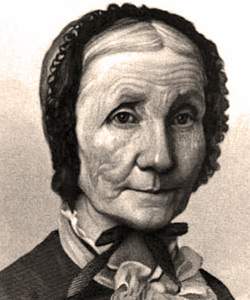Laura Smith Haviland (American National Biography)
Scholarship
Passage of the Fugitive Slave Law in 1850 raised the stakes for abolitionists and slave catchers. Entrusting her farm and younger children to her grown children and the Raisin Institute to its trustees, Haviland began a peripatetic life. For over a decade she moved through the cities of Michigan and Ohio, ministering to the souls and bodies of blacks. She often earned her keep as a sick nurse, guiding her white patients to Christian salvation while at the same time teaching in schools for black children. In Cincinnati she worked with Levi Coffin and Catherine Coffin in the Underground Railroad, preparing food and mending clothes with the women and conducting escapees from "station to station" with the abolitionist men. Unlike most who sheltered fleeing slaves from the "biped bloodhounds" of that era, she was publicly vocal in her denunciations of slavery as an evil no true Christian could allow to exist. She made several trips into slave states in order to rescue illegally held free blacks (not always with success).
In 1863, armed with letters from Michigan political leaders, a railroad pass, and fifteen dollars, Haviland went south with a load of medical supplies to offer "tender nursing" to wounded Union soldiers. She traveled down the Mississippi River, bringing blankets and religious instruction to the freedmen who sought refuge behind Union lines, inspecting military hospitals and prisons, and exposing injustice and cruelty--usually by complaining immediately to the highest military commander in the area.
In 1863, armed with letters from Michigan political leaders, a railroad pass, and fifteen dollars, Haviland went south with a load of medical supplies to offer "tender nursing" to wounded Union soldiers. She traveled down the Mississippi River, bringing blankets and religious instruction to the freedmen who sought refuge behind Union lines, inspecting military hospitals and prisons, and exposing injustice and cruelty--usually by complaining immediately to the highest military commander in the area.
Effie K. Ambler, "Haviland, Laura Smith," American National Biography Online, February 2000, http://www.anb.org/articles/15/15-00898.html.



